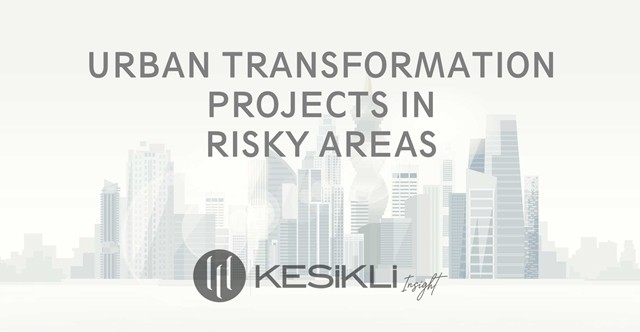Dispute Adjudication Boards (DABs), also known as Dispute Avoidance and Adjudication Boards (DAABs) in FIDIC contracts, have become essential in large-scale construction and infrastructure projects. By providing an arguably efficient mechanism for dispute resolution and prevention, DAABs help maintain project progress while reducing the risk of prolonged litigation or arbitration.
The December 2024 FIDIC Practice Note (Practice Note II Dispute Avoidance – Focusing on Dispute Boards) introduced key updates, reinforcing the proactive role of DAABs in preventing disputes and ensuring their decisions are enforceable. While DAABs offer clear advantages, they are also costly and can be misused by bad faith parties. This article explores the benefits, risks, and best practices for maximizing the effectiveness of DAABs.
What is a Dispute Adjudication Board (DAB/DAAB)?
A Dispute Adjudication Board (DAB) is an independent panel of experts tasked with resolving disputes arising in construction contracts. In the FIDIC 2017 suite, the term Dispute Avoidance and Adjudication Board (DAAB) is used, emphasizing an additional role in preventing disputes before they escalate.
DAABs typically issue binding or non-binding decisions, depending on contract terms. Generally speaking, unless properly challenged within the designated timeframe, DAAB decisions must be complied with.
Key Features of FIDIC’s December 2024 Practice Note
The latest FIDIC guidance emphasizes the importance of early intervention, enforceability, and flexibility in DAAB procedures. Some of the key recommendations include:
1. Early Engagement of the DAAB
- The Practice Note encourages DAABs to hold introductory meetings before construction begins.
- These meetings help familiarize parties with DAAB procedures and reinforce the importance of dispute avoidance rather than just resolution.
- Regular site visits and periodic meetings should be scheduled to proactively address issues.
2. Building Trust Through Open Communication
- DAABs should foster an environment where all parties feel their concerns are heard.
- Neutrality and professionalism must be maintained at all times to ensure fairness.
3. Timely and Proactive Dispute Avoidance
- Dispute prevention should not be limited to scheduled meetings.
- DAABs should intervene flexibly, even through virtual meetings, as soon as issues arise.
4. Identifying and Resolving Disputes Before They Escalate
- DAABs should actively monitor contractual ambiguities and potential sources of conflict before they turn into formal disputes.
- The Practice Note encourages DAABs to issue advisory opinions or engage in informal discussions to resolve disputes early.
5. Enforceability and Procedural Efficiency
- DAAB decisions must be complied with unless formally challenged within the contractually defined period.
- The Practice Note suggests digital submission of claims and streamlined procedures for faster decision-making.
The Risks and Challenges of DAABs
While DAABs are effective, they come with risks and costs that must be managed properly.
1. DAABs Can Be Expensive
- Appointing qualified experts and ensuring regular meetings requires significant financial investment.
- This is why DAABs are generally recommended for major projects where the risk of costly disputes outweighs their operating expenses.
2. Risk of Delays Due to Bad Faith Tactics
- Although DAABs aim for efficiency, parties acting in bad faith can misuse the process to delay outcomes.
Common tactics include:
- Repeated procedural objections to slow down decision-making.
- Ignoring DAAB decisions, leading to enforcement disputes.
- Strategic challenges to DAAB members to disrupt proceedings.
3. How to Avoid Delaying Tactics
- Clear Procedural Timelines – Define strict deadlines for dispute resolution in contracts.
- Nature of Decisions – The contractual wording should be drafted to avoid possible delaying tactics. The bindingness and enforceability concerns should be addressed accordingly.
- Expert and Experienced DAAB Members – Appoint professionals capable of handling difficult parties.
- Sanctions for Non-Compliance – Include penalties or liquidated damages for parties that fail to comply with DAAB decisions.
4. Why Use a DAAB Despite the Costs and Risks?
DAABs provide major advantages in complex construction projects:
- Faster than arbitration or litigation.
- May avoid delays and expensive legal proceedings.
- Neutral professionals with deep industry knowledge.
- Encourages cooperation and fair dispute resolution.
Best Practices for Effective DAABs
1. Appoint the Right Experts: Select neutral professionals experienced in construction, engineering, and contract law.
2. Engage the DAAB Early and Regularly: Schedule site visits and meetings proactively rather than waiting for disputes to emerge.
3. Ensure Clear Procedural Rules: Follow FIDIC’s latest guidance to avoid loopholes that could be exploited.
4. Respect and Enforce DAAB Decisions: Non-compliance with DAAB rulings can have serious consequences, as reinforced by FIDIC’s 2024 Practice Note.
Conclusion
Dispute Adjudication (or Avoidance) Boards continue to be a powerful tool for managing and resolving disputes in construction projects. When implemented effectively, they can prevent conflicts from escalating and keep projects on track. However, the high costs, potential delays, and the risk of strategic misuse by bad faith parties must be carefully navigated to ensure the system works as intended.
By adopting best practices and staying aligned with FIDIC’s latest guidance, project owners and contractors can leverage DAABs to their full potential—resolving disputes swiftly, maintaining project momentum, and avoiding prolonged litigation.
While DAABs aim to resolve disputes early, arbitration may become unavoidable when a party refuses to comply with a DAAB decision or when complex legal issues arise that require a final determination. In such cases, well-prepared arbitration proceedings are essential to securing a favorable outcome. Success in arbitration often depends on a strong paper trail, including clear records of contractual obligations, correspondence, DAAB findings, and evidence of compliance with dispute resolution procedures. Good project management—ensuring meticulous documentation and proactive risk assessment—can make a significant difference in effectively presenting a case. Preparing for arbitration from the outset by keeping detailed records and following best practices in dispute resolution can save time, reduce costs, and strengthen a party’s position when formal proceedings become necessary.
Our team is ready to assist if you need tailored advice on structuring DAAB provisions or handling dispute resolution efficiently. Get in touch with us to explore how we can support your project.
@Dr. Ömer Kesikli
Let's Get Connected!



